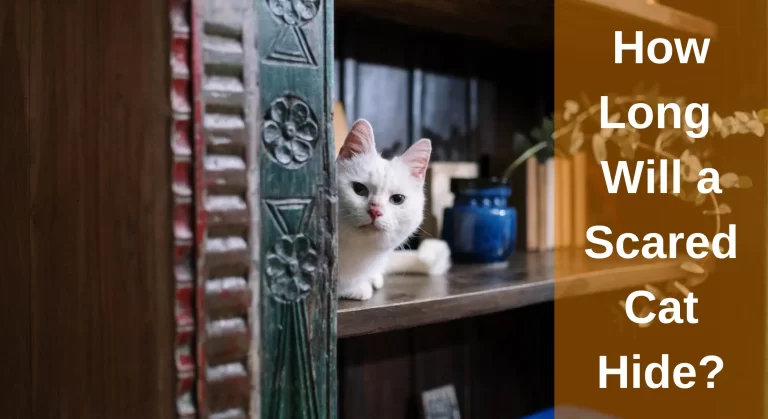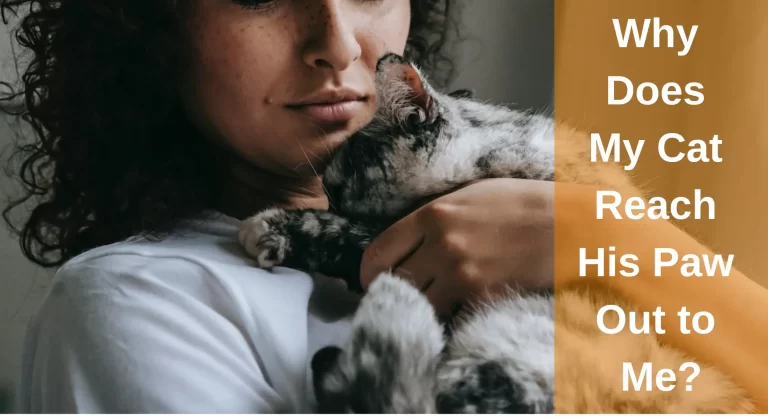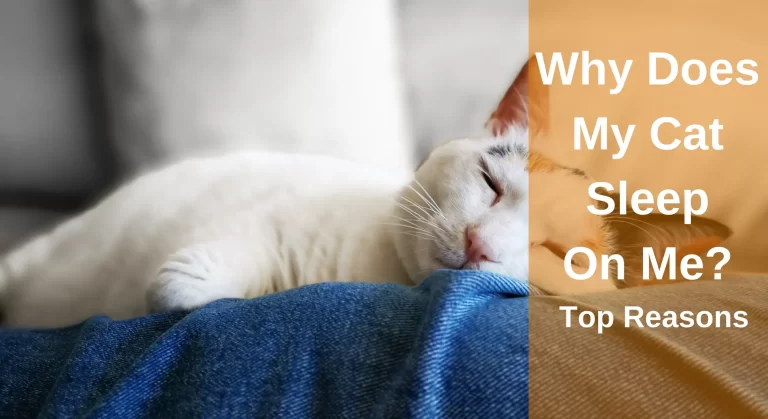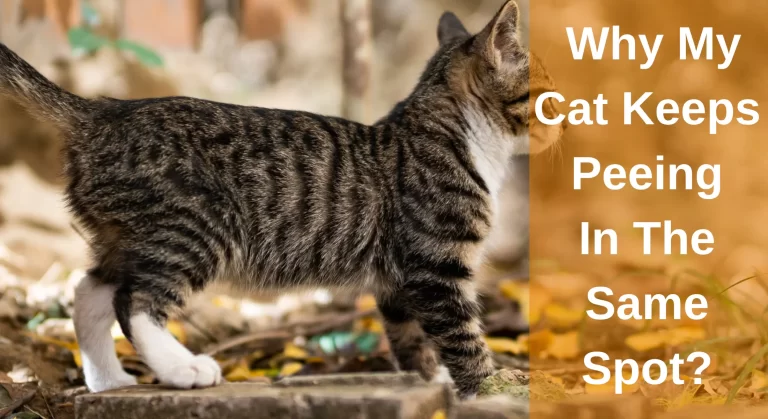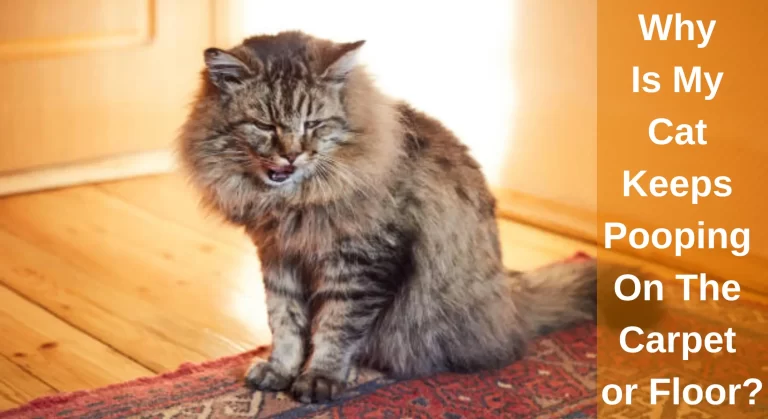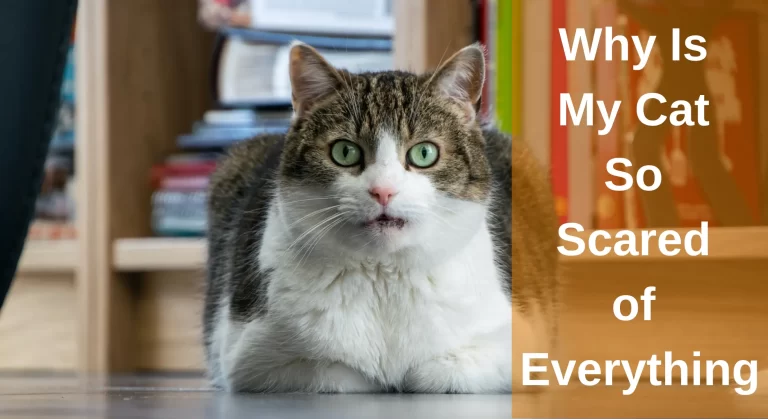Why Is My Cat Sleeping More Than Usual? [Top Reasons]
Cats need sleep just like we do to sustain themselves, as sleep recharges and restores the body for the next day. Sleep also supports memory function and boosts immunity.
Cats are well-known for their love of sleep. They can spend up to 16 hours a day snoozing and, in some cases, even more. While this may seem like a lot, it’s important to remember that cats are natural predators and evolved to conserve their energy for hunting and catching prey.
How long does your cat sleep? Have you noticed that your cat is sleeping more than usual?
Generally, cats sleep between 12 and 16 hours a day. Kittens and older cats can spend up to 20 hours sleeping. Cats spend a lot of their lives sleeping and napping, but it will vary from one to another. Nonetheless, any changes in sleeping patterns, along with other symptoms that occur, could indicate that your cat needs medical attention.
Here is a breakdown of some of the most common reasons why your cat might be sleeping a lot. This information will help you decide whether their sleeping habits have changed for the worse or the better. To give your cat the best care, you need to understand its behaviour, so let’s begin!
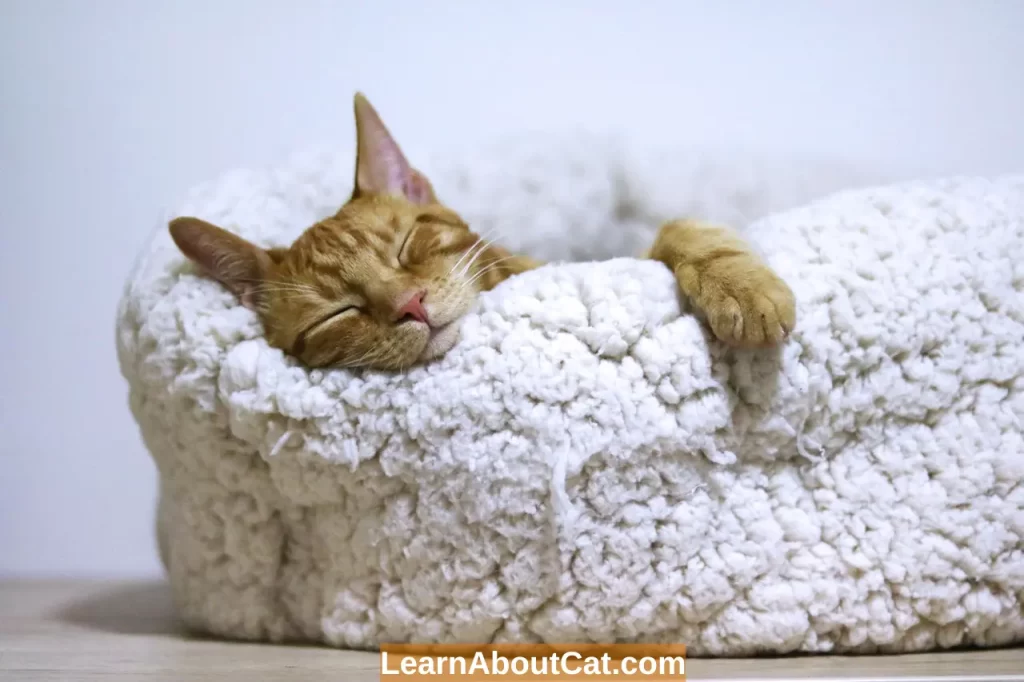
How Long Do Cats Sleep? Normal Cat Sleeping Pattern and Habits
The sleep pattern of cats is polyphasic, which means they sleep multiple times throughout the day rather than sleeping for long periods as humans generally do.
The average length of these cat naps is 78 minutes; however, cats tend to sleep for periods of between 50 and 113 minutes.
During the darker months of the year, cats sleep more, so don’t worry if your cat seems to sleep a lot during the winter. Furthermore, they tend to spend more time sleeping when it’s cold or bad weather, such as a storm; they also sleep more when temperatures are low.
Reasons Why Is My Cat Sleeping More Than Usual
There are several reasons why your cat might be sleeping more than usual, some of which are completely normal, while others might indicate a more serious underlying issue. Below are some of the most common reasons why cats sleep more than usual:
It’s important to pay attention to your cat’s sleeping habits and look for any other signs of illness or discomfort. If you notice any other concerning symptoms, such as lethargy, loss of appetite, or vomiting, you should take your cat to the vet to get checked out.
1. Natural Sleeping Pattern
Cats tend to sleep during the day and are most active during dawn and dusk. Crepuscular animals are most active at these times of the day and will sleep at any time during the night.
It’s normal for a healthy adult cat to sleep for up to 16 hours a day, so if your cat is constantly sleeping, it may simply be following its natural sleeping pattern.
2. Age
As cats age, they tend to become less active and sleep more. Cats’ energy levels often fall as they grow older, which starts at the age of seven. Aside from having less energy, the elderly are more vulnerable to medical conditions that induce them to sleep more.
Older cats may sleep up to 20 hours a day, which is usually not a cause for concern as long as they eat and drink normally and show no other signs of illness.
The majority of people assume that kittens are always energetic and vivacious. Kittens under a year old sleep far more than adult cats, typically around 20 hours daily.
This is because kittens are still developing and need rest to help their bodies to grow and develop appropriately.
3. Boredom
If your cat is not getting enough mental or physical stimulation, it may sleep more out of boredom. Cats love sleeping. They spend up to 12-16 hours a day sleeping if there is nothing else for them to do. If there is nothing else to do, cats will sleep.
Playing with your cat can keep it engaged and active by providing it with toys, scratching posts, and interactive playtime.
4. Depression
Oversleeping in combination with other symptoms like loss of appetite, avoidance, and other strange behavior might indicate depression in your cat
Just like humans, cats can experience depression, which can cause them to sleep more than usual. Unhappy cats, lose interest in other activities. They will have difficulties getting out of bed and will be apprehensive to face the day.
As a result, your cat may sleep all the time if they are suffering from mental illness. You may also notice changes in their grooming habits as learned behaviours, such as litter box usage, can sometimes be forgotten.
If you suspect your cat is depressed, consult with your veterinarian.
5. Health Problems
If your cat is sleeping constantly and not showing any interest in food or water, it may be a sign of an underlying health problem. Common health issues that can cause excessive sleeping in cats include:
- Thyroid problems
- Anaemia
- kidney disease
- Diabetes
- Mental disorder
- Gastrointestinal issues
- Cardiovascular issues Asthma and other respiratory conditions
- Renal failure
- Musculoskeletal condition Cancer
- Lethargy, on the other hand, is something they all have.
If you suspect that your cat may be sleeping more due to a health issue, along with other symptoms or changes in behaviour, such as vomiting, diarrhoea, or lethargy, it’s important to take your cat to the vet for a check-up.
6. Excessive Food Consumption
You may also have overfed your cat, which could explain why they are sleeping more than usual. Furthermore, cats tend to go to sleep right after eating since they will require this time to digest its enormous meal.
As soon as their food goes down, they’re even more likely to take a nap if you give them a large portion. In order for cats to spend 100% of their energy on digestion, they must nap after eating. Cats being overfed definitely need this time to process their large portions.
Talk to your veterinarian about your cat’s diet to ensure they get the right nutrition.
7. Obesity
There is a very good chance that your cat sleeps a lot due to obesity. Aside from overfeeding, an imbalanced diet and insufficient exercise can also contribute to obesity in cats. A cat should have three to four small meals every day. Make sure that he eats a diet that is rich in protein.
Leaving cats alone for most of the day with lots of food increases their likelihood of becoming overweight. Ensure your cat does not overeat by using portion-controlled feeders when you are out of the house for a long period of time.
Find ways to give your indoor cat plenty of exercises, whether it is by teaching your cat to walk on a leash or by providing him with interactive toys.
Check Out: How to Help a Cat Lose Weight with Multiple Cats at Home?
7. Environment (Comfort and Safety)
If your cat feels safe and comfortable in their environment, it may sleep more. Providing a cosy bed, a comfortable temperature, and a quiet space can help your cat feel more relaxed and inclined to sleep.
Cats are creatures of comfort, and they like to sleep in safe and secure places where they can relax without fear of danger. A comfortable sleeping spot can help cats reduce stress and anxiety, which is important for their overall health.
8. Temperature Regulation (Scorching Weather)
Cats have a higher body temperature than humans, and they need to regulate their temperature to maintain good health. Sleeping helps cats regulate their body temperature. In hot weather, cats sleep in order to keep themselves cool, and in cold weather, they sleep to keep themselves warm.
Because of the warmer weather, your cat may be sleeping more than usual. Cats like temperatures ranging from 60 to 90 degrees Fahrenheit, therefore, your cat will be less active and sleepy on a hot summer day with temps in this range.
Also, Check Out: What Temperature Do Cats Like?
9. Exhaustion
Your cat may be sleeping if you just finished a long game of fetch with them. If so, they may simply be exhausted. Your cat needs to recover from the intense bursts of energy they just expended.
If this is the case, it will likely be evident from how much sleep he is getting after a particularly active period.
It’s great to play with your cat but avoid playing so much that they get exhausted. 15-minute intervals are a good rule of thumb.
Also Read: Why Do Cats Cover Their Faces When They Sleep?
10. Infections
The following are a handful of the most prevalent forms of infections:
- Viral Infection: Cats’ most common viral illnesses are feline immunodeficiency virus (FIV), feline leukaemia virus, and herpesvirus. Feline viral rhinotracheitis (FVR), one of the most common feline respiratory illnesses, affects the lungs. FIV and FeLV weaken the immune system.
- Ectoparasites: Ticks, fleas as well as worms are external parasites. Because worms, fleas, and ticks exploit the cat as a host, they can suck the cat’s energy and make it sleepy all the time.
- Bacterial Infection: Bacteria that typically infect cats include Salmonella, Campylobacter, and Streptococcus. These illnesses are frequently spread to cats by contaminated water, uncooked meat, or faeces.
11. Medications
Some medications can cause drowsiness in cats, an undesirable side effect of various drugs. Opioids such as fentanyl, morphine, buprenorphine, and codeine are occasionally provided to alleviate severe pain in cats.
Regardless, all of these drugs include tiredness as a side effect. If your cat is on medication, consult with your veterinarian to see if this is a potential side effect.
12. Stress or Anxiety
Cats that are stressed or anxious may sleep more than usual as a way to cope with their emotions.
Stressors for cats can include changes in the environment, changes in routine, new pets or people in the home, or the loss of a companion animal or human.
Sleep is essential for the body to heal and recover from the stresses of daily life. Cats, like humans, need restful sleep to repair damaged tissues, strengthen the immune system, and promote overall health and well-being.
13. Poisoning
If a cat sleeps a lot more than normal, you may want to examine the chance that he has inhaled, swallowed, or has come in touch with poison. Toxic plants and chemicals pose a risk, particularly to cats who frequently venture outside.
Vomiting, diarrhoea, pale gums, trouble breathing, and the appearance of blood in stool or vomit are all possible symptoms of poisoning in your cat.
14. Pain
If your cat is in pain, it may sleep more to help alleviate discomfort. Signs of pain in cats can be subtle, so it’s important to watch for changes in behaviour or appetite.
Intresting Reading: Why Do Cats Purr When They Sleep?
15. Energy Conservation
As mentioned earlier, cats sleep to conserve energy. Unlike herbivores, which need to graze for many hours a day to get the nutrients they need, cats are carnivores and can get all their energy from a single meal. By sleeping for long periods of time, cats can store the energy they need to hunt and play.
Is it Normal for a Cat to Sleep all Day?
Sleeping is an integral part of a cat’s daily routine. The average adult cat sleeps 16 to 18 hours a day. Cats often sleep for long periods of time without waking up.
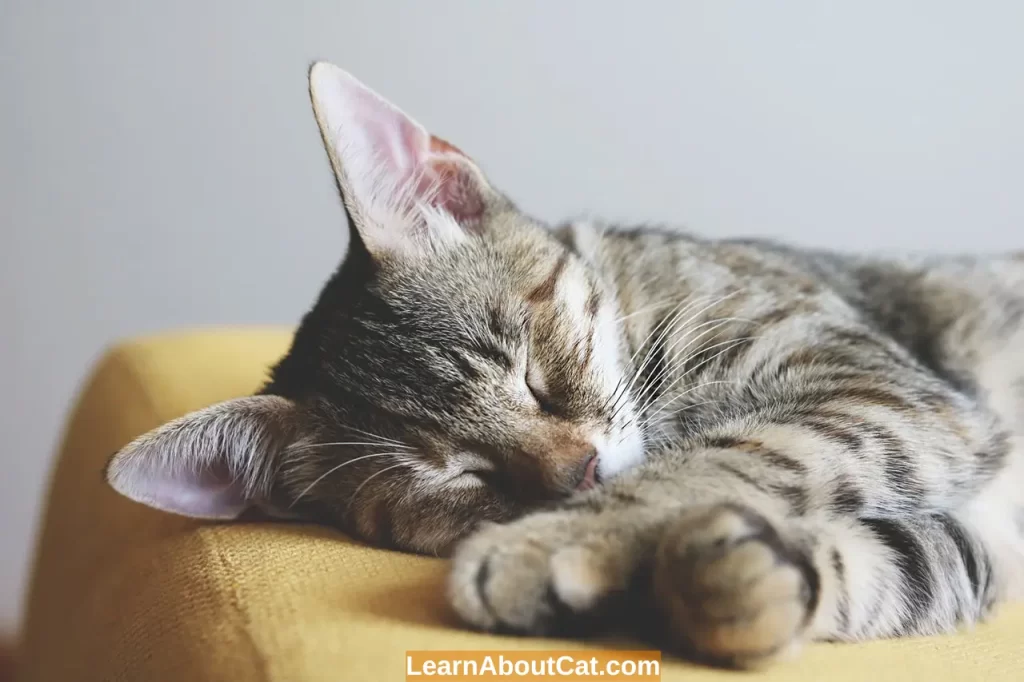
Many of these restlessness periods are catnaps, during which the cat is able to respond to the usual stimuli, such as the owner entering the room or preparing cat food.
Cats in their adolescence may have irregular sleep patterns combined with intense playfulness.
Most kittens will spend their days sleeping, interrupted only by short periods of activity between meals.
Is My Cat Really Asleep?
It is true that cats sleep deeply, but this is not always the case. Like people, cats sometimes just snooze rather than sleep deeply. In cats’ sleep, light sleep accounts for about 3/4 of the time, while deep sleep accounts for just 1/4.
The cat gets the rest it needs while snoozing lightly but remaining alert at the same time. During snoozing or napping, you may notice your cat’s eyes may remain slightly open, or its ears may twitch and rotate upon hearing sounds.
How Much Sleep Does a Cat Need?
The number of hours your cat needs to sleep and her usual sleeping pattern will alter as she gets older:
- Senior cats have less energy and mobility than younger cats; therefore, they sleep more (16-20 hours).
- Adult cats sleep between 12 and 16 hours each day on average.
- Adolescent cats‘ sleep patterns may be erratic, with periods of excessive playfulness.
- Kittens will most likely spend most of the day sleeping, with brief spurts of activity in between feeding.
What is Too Much Sleep for My Cat, And When Should I be Concerned?
Cats simply love to sleep, so you can’t tell if your cat sleeps too much or not. Nevertheless, If your cat sleeps more than 20 hours a day and spends a lot of the time in deep sleep, you may want to take him to the vet just to ensure that their sleep isn’t caused by something more serious.
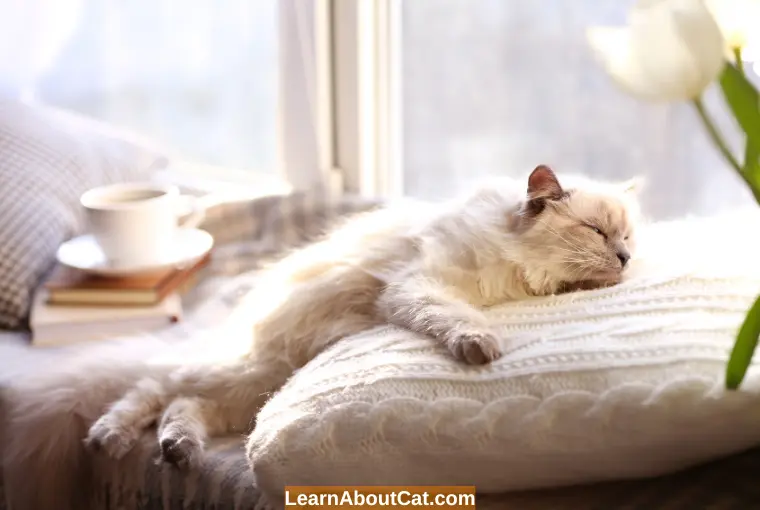
If your cat starts sleeping a lot more or a lot less than usual, there might be a health issue that needs to be addressed, and you should consult your veterinarian. Cats who begin to sleep more than normal might be unwell or in pain. If your cat starts sleeping less than normal, it might be a sign of hyperthyroidism or another ailment.
No specific amount of sleep indicates a health risk or urgency; rather, it is about recognising your cat’s normal sleep habits and noticing when that pattern alters significantly.
Frequently Asked Questions
How Many Hours Does My Cat Normally Sleep?
Cats often sleep 15 hours a day on average, with some drowsy felines snoozing up to 16-18 hours per day. Several variables impact how long a cat sleeps, the most significant of which is its age.
How do cats sleep when they are sick?
A sick cat may spend most of the time lying in a hunched position, neglecting to groom itself. It is common for cats to purr when they are happy, as well as when they are sick or in pain. Cats with breathing difficulties may refrain from lying on their sides and keep their heads up.
Do depressed cats sleep a lot?
Sleeping is a big part of cats’ lives, and they would sleep for 12-16 hours a day if they could. A cat suffering from depression can sleep for even longer periods. They may even sleep in a different location from where they normally sleep.
Why is my cat sleeping so much lately?
Your cat may be experiencing a health issue if he/she starts sleeping a lot more or less than usual. Consult your veterinarian if you notice any changes in sleeping habits. It could be that your cat feels ill or has pain if it begins to sleep a lot more than usual.
Is my cat sleeping because they’re sick or tired?
A sick cat’s energy level will generally be lower than an energetic cat’s. There are only a few things you may notice about your cat: it sleeps more, doesn’t play as much, or is restless.
There may be times when your cat appears to be hyperactive because of its increased energy when he is afflicted with certain diseases, especially hyperthyroidism.
Wrap Up!
Excessive sleeping and fatigue are common symptoms of significant medical disorders. Your cat may be sleeping more because she is overheated, overfed, or tired due to a strenuous play session
So, making an appointment with your veterinarian is always a good idea. If something is not going on with your feline, contact a veterinarian who can cure your cat and return them to its regular energetic, and lively self. Even if there isn’t, it’s comforting to know that your cat is healthy, if a little lethargic.
Related Posts:
- Why Do Cats Get In Your Face While You Sleep?
- Kitten Sleeping All Day After Vaccination – Is It Normal?
- Where Should Kittens Sleep at Night?
- My Kitten is Weak And Sleepy – How to Care for a Sick Kitten [A Guide]
- Why Does My Cat Follow Me Everywhere And Sleeps With Me?
- Why Does My Cat Sleep Between My Legs?
- Why Does My Cat Sleep On Me?
Who is Isabella?
My name is Isabella, and I am a dedicated and knowledgeable cat enthusiast. With years of experience caring for cats and a deep love for felines, I made a mission to help other cat lovers navigate the challenges of cat ownership.

